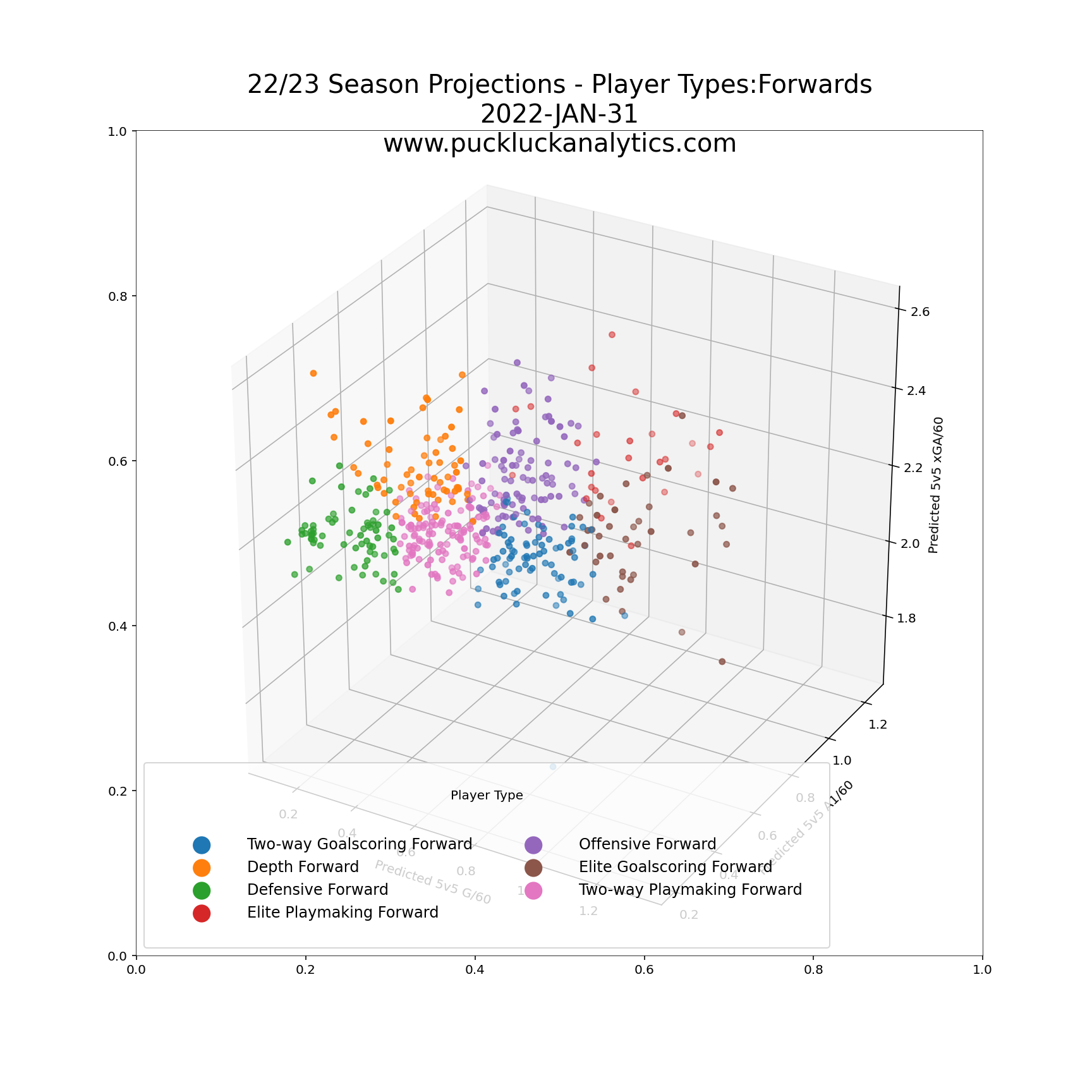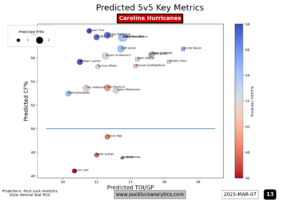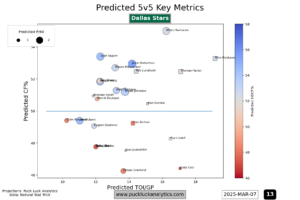It’s obvious to even casual hockey fans that every player is not equal. Skill level is one obvious differentiator that we’ve looked at through the player projections, with overall impact as the measure of a player’s skill. Player type is another way to differentiate players based on how they approach the game and we’re going to delve into it in this post.
Differing Styles
The debate over whether Sidney Crosby or Alex Ovechkin is better has raged for more than a decade. One of the factors that often comes up is their playing style. Ovechkin is chasing Wayne Gretzky’s all-time goals record and is clearly approaches the game with a shoot first mentality. While Crosby hasn’t racked up goals at the same rate, he has factored in by setting teammates to score with more of a playmaker mentality.
We can look at offensive versus defensive mindsets in a similar manner. A player like Patrice Bergeron tends to take care of things in his own end, resulting in perennial Selke nominations. On the hand, there are players like Mark Scheifele in Winnipeg who have tremendous offensive impacts but are much less responsible in their own end.
Clustering by Player Type
It’s easy to identify playing style for some players based on an eye test or a quick look at their statistics. For others, it’s more difficult. It’s also a tall task to look at each player individually and ensure we maintain constant criteria in how we evaluate their player type. That’s where a clustering algorithm can help.
K-means clustering is an unsupervised learning algorithm used to group data when the data does not have pre-defined categories. In our case, we have a set of player statistics and we want to group the players by player type.
After experimenting with the number of clusters and the input variables, I landed on 7 player types for forwards and 5 player types for defensemen. Using 5v5 G/60, 5v5 A1/60 and 5v5 xGA/60 provided insight into playmaking vs goalscoring tendencies along with offensive vs defensive tendencies. Let’s take a look a the player types for the 22/23 season projections.
Player Types: Forwards
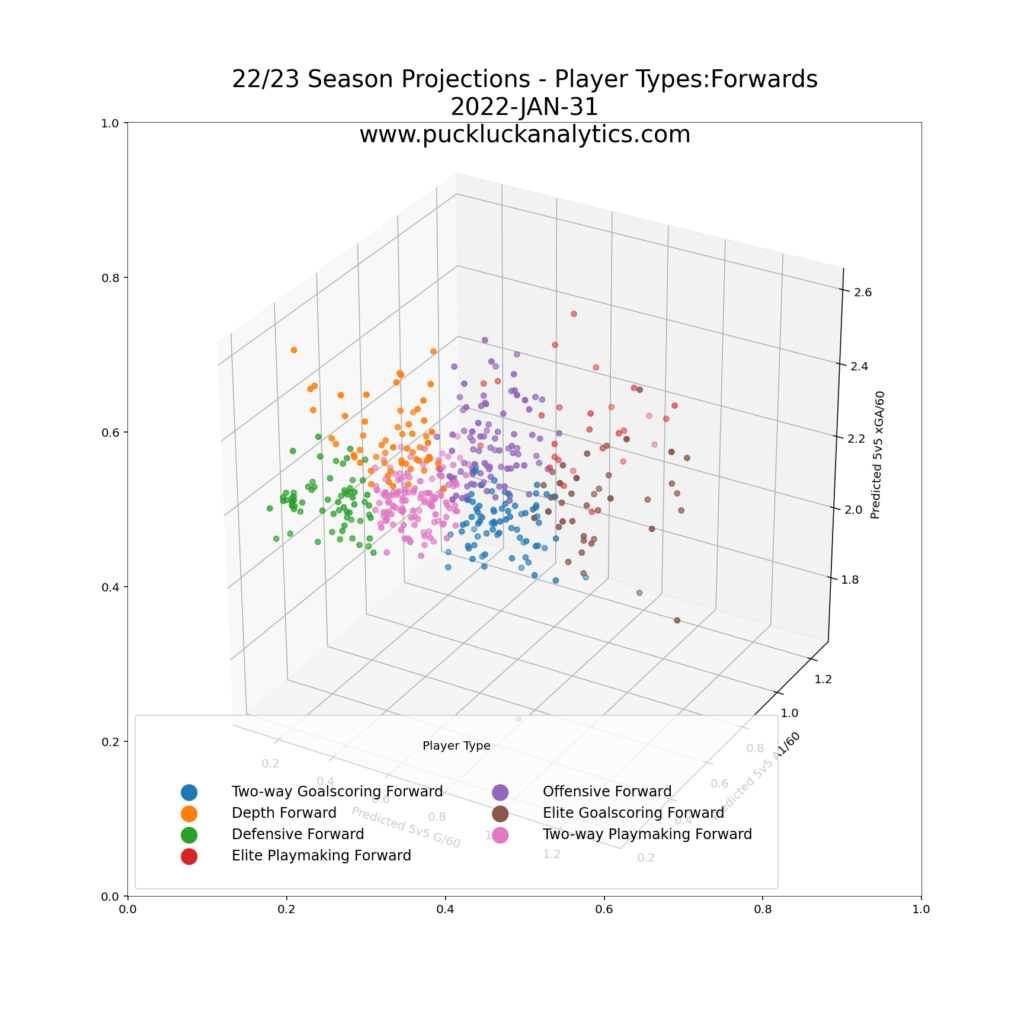
Elite Goalscoring Forwards have a high ratio of goals to primary assists. Their defensive impact varies widely, however their offensive impact is very strong. Players in this group include:
- Auston Matthews
- Kyle Connor
- Alex Ovechkin
- Jonathan Marchessault
- Max Pacioretty
Elite Playmaking Forwards prefer to set up teammates so they have a low ratio of goals to primary assists. similar to the Elite Goalscoring Forward, their defensive impacts vary widely and they all have very strong offensive impacts. Players in this group include:
- Mark Stone
- Nathan MacKinnon
- Johnny Gaudreau
- Artemi Panarin
- Connor McDavid
Offensive Forwards have strong offensive impacts along with poor defensive impacts. They focus strongly on creating offense and are successful at it (although slightly less than the elite forwards categories) but defensive responsibilities may suffer as a result. Players in this group include:
- Andreas Johnsson
- Andrei Svechnikov
- Pavel Buchnevich
- Joel Farabee
- Mark Scheifele
Two-way Goalscoring Forwards have strong defensive impacts combined with decent offensive impacts. Their offensive tendency leans toward shooting rather than playmaking. Players in this group include:
- Blake Coleman
- Carter Verhaeghe
- Valeri Nichushkin
- David Pastrnak
- Patrice Bergeron
Two-way Playmaking Forwards also have strong defensive impacts combined with decent offensive impacts. The difference from the previous group is their offensive tendency leans toward playmaking. Players in this group include:
- Kyle Okposo
- Jordan Martinook
- Ilya Mikheyev
- Warren Foegele
- Ryan Getzlaf
Defensive Forwards have strong defensive impacts but contribute little offensively. Players in this group include:
- Chris Wagner
- Juho Lammikko
- Ryan McLeod
- Taylor Raddysh
- Lias Andersson
Depth Forwards are not particularly strong offensively or defensively. Players in this group include:
- Tyler Pitlick
- Antoine Roussel
- Loui Eriksson
- Brian Boyle
- Filip Zadina
Player Types: Defensemen
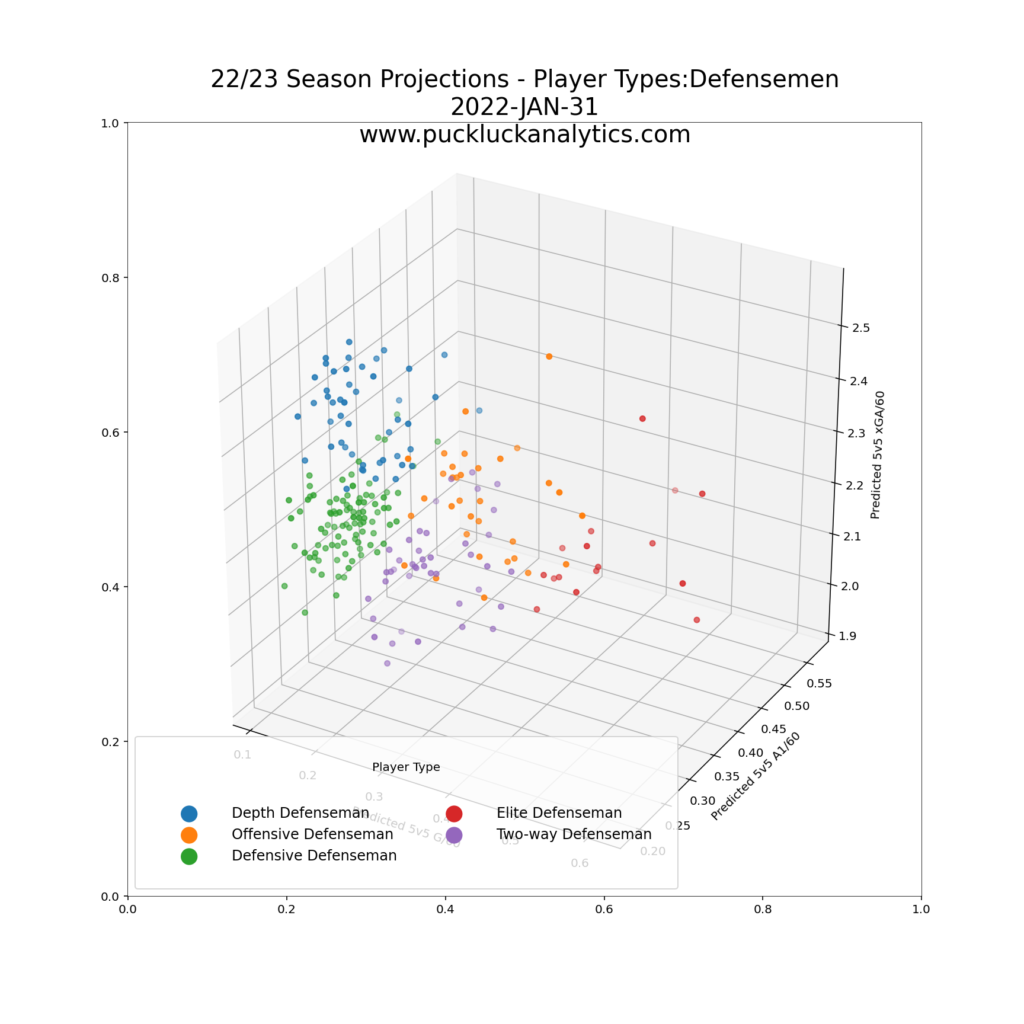
Elite Defensemen have very strong offensive impact and typically strong defensive impacts as well. They may be playmakers or goalscorers, but tend to be strong at both. Players in this group include:
- Cale Makar
- Dougie Hamilton
- Darnell Nurse
- Aaron Ekblad
- Adam Boqvist
Offensive Defensemen have strong offensive impacts with less remarkable defensive presence. Players in this group include:
- Alex Pietrangelo
- Brady Skjei
- Brent Burns
- Cam Fowler
- Shayne Gostisbehere
Two-way Defensemen have decent offensive impact combined with reasonably strong defensive impacts. Players in this group include:
- Adam Fox
- Kris Letang
- Mark Giordano
- Mattias Ekholm
- Charlie McAvoy
Defensive Defensemen have strong defensive impact with little offensive contribution. Players in this group include:
- Adam Larsson
- Adam Pelech
- Jake Muzzin
- Jaccob Slavin
- Rasmus Andersson
Depth Defensemen are not particularly strong offensively or defensively. Players in this group include:
- Erik Gudbranson
- Jacob Trouba
- Danny DeKeyser
- Rasmus Ristolainen
- Patrik Nemeth
Why Define Player Types?
Now that we’ve defined some player types and grouped players where they best fit, what use is this information? It’s not use in the player or team projection models at this point, but it can still provide some additional insight. We can now easily identify if teams have complementary players or are heavily invested in one type. We also have additional information that can help us understand why a player may be over or underperforming the model prediction. For example, an underperforming goalscorer may be due to individual causes, like low shooting percentage, but may also be due to lack of a complementary playmaker on their line. We now have some additional information to help us investigate.
